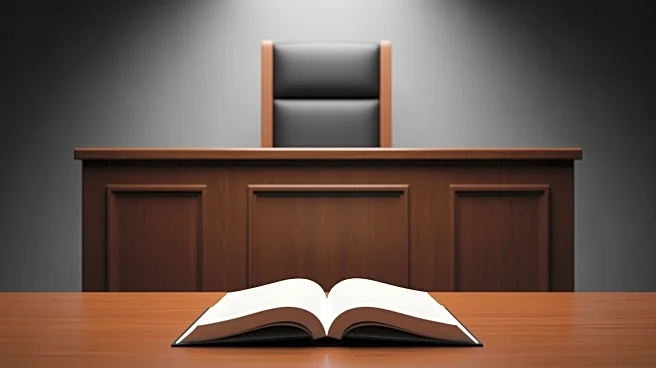Rapid Read • 8 min read
Estonia, Latvia, and Lithuania are taking a firm stance against Russia's actions in Ukraine, which is creating a complex situation for Russian President Vladimir Putin. Despite not having a direct strategy to unseat Putin, their resistance is causing a dilemma for the Kremlin. The Baltic states have disconnected their electrical grids from Russia, achieving energy independence and reducing their vulnerability to Russian coercion. They are also supporting Ukraine materially, including initiatives like Latvia's co-leadership in delivering drones to Ukraine. This resistance is rooted in their historical experiences with Russian imperialism and is bolstered by their societal advancements in technology and innovation.
AD
The Baltic states' actions are significant as they challenge Russia's influence and demonstrate the power of small nations in shaping geopolitical dynamics. Their energy independence and support for Ukraine set a precedent for resisting Russian aggression. This situation highlights the potential for a leadership crisis in Russia, as Putin's legitimacy is tied to the war's outcome. The Baltic states' success in fostering innovative societies contrasts with Russia's demographic decline, offering an attractive alternative to the Kremlin's worldview. This could influence other nations to adopt similar strategies, potentially reshaping regional power balances.
The ongoing resistance from the Baltic states may lead to further strategic shifts in Moscow. The appointment of economist Andrei Belousov as Russia's defense minister suggests a pivot towards managing a permanent war economy. The Kremlin's actions, such as removing border buoys and jamming GPS signals, indicate desperation rather than strength. The internal stability of the Russian regime may become threatened, prompting Moscow elites to reassess their support for Putin. This could lead to significant changes in Russia's approach to the conflict and its relations with neighboring countries.
The Baltic states' defiance may inadvertently create a scenario where the Russian elite view Putin as a liability rather than a guarantor of their interests. This internal calculus could lead to a shift in power dynamics within Russia, potentially resulting in a change in leadership. The principled stance of the Baltic states serves as a model for other nations facing similar threats, emphasizing the importance of resilience and innovation in overcoming geopolitical challenges.
AD
More Stories You Might Enjoy











